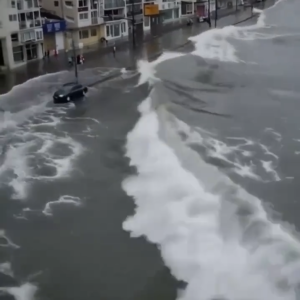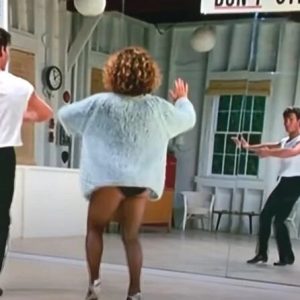A blizzard blurred the road as Igor drove, his hands tight on the wheel. In the backseat, the baby cried. Beside him, Tatyana stared blankly out the window. They had left the city behind, hoping the countryside might bring healing. Instead, they found cold, isolation, and silence.
Their destination: an old, leaning house in the snow—rotting, damp, and long abandoned. Tatyana, sick and weary, sank into the snow upon arrival. “Be careful,” Igor snapped, lifting the baby from her arms. Inside, they found mold, grain sacks, and faded memories. They worked in silence to make it livable. Igor tried to lighten the mood with a joke about a Nutcracker painting in the baby’s room. Tatyana didn’t smile.
That night, a sound outside. Igor opened the door to find a starving dog curled on the porch. Despite Tatyana’s protests, he brought her in. She curled near the crib, still and alert. They named her Lada.

Lada became ever-present—watching, guarding. Tatyana grew suspicious, especially after a chicken was found dead near her, blood on her fur. “It’s her or me,” she told Igor.
He left Lada on a distant bridge.
But days later, the sounds returned—scratching in the walls. Then a blur in the snow: Lada. She burst in and dove for the crib. There, she killed a massive rat—saving the baby she had never once threatened.
Tatyana wept with regret. Lada had been protecting them all along.
From that night, Lada was family. She guarded the baby, watched the house, and brought peace back to their broken lives. The house filled with warmth and laughter. Tatyana healed. Igor changed. And Lada never wavered.
Years later, when they brought home their second child, Lada was there, steady and proud, standing watch at the crib—her place, her purpose, her home.





